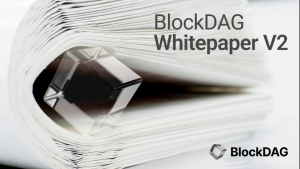Fourth largest interbank FX dealer’s 1 billion euro loss: Corporate fecklessness compounds liquidity crunch
The OTC derivatives and non-bank prime brokerage sector in London leads the way ahead, innovates and produces the most sophisticated execution and market infrastructure in existence – largely due to the necessity of navigating the banking ham-fistedness and ensuring that the very best is made of it for the end user traders

Deutsche Bank is a household name among interbank FX dealers, dominating the skyline at London’s Canary Wharf, nestling among its peers which between the four of them are responsible for 49% of all global FX order flow.
Such dominance can only emanate from institutions with thoroughbred roots, generations of world class leadership having propelled today’s Tier 1 powerhouses into the ultra-modern, plate-glass electronic trading giants that they are today, led by boards with technological leadership acumen, global investment genius and a sharp focus away from the dinosaur that is retail branch banking, instead focusing on the core business activity of electronic trading and liquidity provision.
London, being the world’s most revered and largest financial center is home to these giants with their multi billion dollar in-house technology, first class risk management and deep global understanding of the topography of the market infrastructure that powers every aspect of the financial markets economy.
Why, then, is Deutsche Bank about to release its 2016 annual report with a 1 billion euro loss written large across it for all to see?
On Thursday, February 2, Deutsche Bank, which has been plagued by corporate failure during the past year and a half, will release its full operating metrics for the year 2016, which will make for quite morose reading by all accounts.
Setting the scene for this was the drop during 2015 in FX market share, which now stands at 7.9%, almost half that of 2014 in which it was responsible for 14.5% of global order flow.
Today, Citigroup dominates the global FX interbank market, with 16.5% of all flow, however Deutsche Bank held the number one slot globally for all FX order flow for an astonishing 9 years until 2014.
Some of the more generic overviews that are being generated with regard to this annual loss center on fiscal penalties that have been issued to major banks for various recent transgressions such as FX rate manipulation, rigging the LIBOR rate, or mis-selling of retail banking ancillary products such as payment protection insurance, however it is much more grave than that.
Deutsche Bank finalized a $7.2 billion payment with the US Department of Justice earlier this month which was made up of a civil penalty of $3.1 billion and provide $4.1 billion in consumer relief for mis-selling mortgage-backed securities, having agreed the settlement in principle last December.
That is certainly not chump change, but it is not the crux of the problem at all.
In October last year, during the myriad of woes that faced Deutsche Bank and long after German finance minister Wolfgang Schaueble attempted to deflect investor discourse from the firm’s worries by stating that there is pretty much nothing to see here (when he knew full well there was), Deutsche Bank’s Chief Risk Officer Stuart Lewis piped up, playing down the bank’s £41 trillion derivatives risk exposure.
Stuart Lewis, Deutsche Bank’s Chief Risk Officer was questioned about its derivatives exposure, his response having been to play down the estimates that have been made.
“The risks in our derivatives book are massively overestimated. The €46 trillion figure sounds gigantic, but it is completely misleading. The real risk is far lower,” he said.
Mr. Lewis spoke publicly on October 9 stating that the €46 trillion relates to the notional value of derivative contracts rather than the real exposure to the bank, which he maintains is closer to €41 trillion.
This prompted another “nothing to see here” approach from Germany’s finance minister Wolfgang Schaeuble who said “There is far too much talk about Deutsche Bank”.
Indeed there is, Mr. Schaeuble. It is an ailing institution which is a major factor in Tier 1 liquidity worldwide, and as of last week, Germany’s government stated that there would be no state support for the firm if it becomes insolvent, thus this is an important matter, and not one that should be swept under the carpet by using non-transparent government soundbites that have become commonplace in the socialist European parliaments.
A series of plummeting share price episodes once again emerged as the third quarter of last year began, and as the first week in October drew to a close, an even more precarious position had been demonstrated in that Germany’s government has stated that it would not be prepared to provide any form of state funded bail out for the bank should it eventually hit the buffers.
The consolidation aspect may well be brought in, but, quite rightly, if a buyer comes along, it will buy the derivatives element of Deutsche Bank’s business, and not anything else.
In the United States, which is where the acquisition may come from, just five banks account For 96% of $250 trillion in outstanding US derivative exposure.
The top 4 banks: JPMorgan with $78.1 trillion in exposure, Citi with $56 trillion, Bank of America with $53 trillion and Goldman with $48 trillion, account for 94.4% of total exposure.
Speculation within the interbank sector late last year highlighted that Citi, the world’s largest FX dealer with 16.1% of global market share by volume, may be interested in acquiring Deutsche Bank’s derivatives.
If that occurs, Deutsche Bank will be left pretty much moribund, as it cannot rely on an outmoded retail banking sector with high staff and real estate costs, doing business in near-bankrupt mainland Europe with enormous taxation and small-figure overdrafts and personal loans as a core business instead of massive OTC derivatives liquidity provision from just one office to a global commercial audience.
It was Citigroup, the largest dealer in the world’s FX markets, that issued a report last year stating that it predicts a 56% potential default rate when extending credit to OTC derivatives counterparties.
This will likely be paid great attention to by Deutsche Bank officials, who, despite clearly not being able to sensibly operate their global operations, will at least be afraid of their liabilities and financial position enough to rein in any further exposure, thus the liquidity crunch that many OTC firms face will likely become even more pronounced, rather annoyingly as a result of corporate banking ineptitude rather than any misconduct by the OTC sector.
Quite the contrary in fact. The OTC derivatives and non-bank prime brokerage sector in London leads the way ahead, innovates and produces the most sophisticated execution and market infrastructure in existence – largely due to the necessity of navigating the banking ham-fistedness and ensuring that the very best is made of it for the end user traders.









